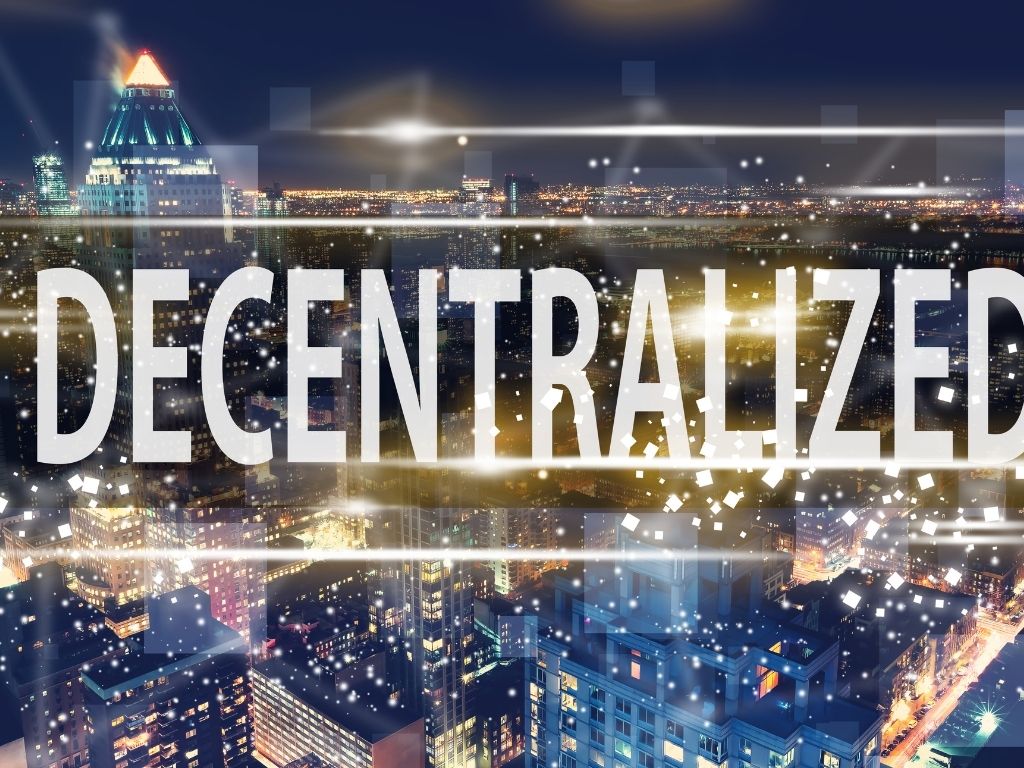Is DeFi Going to Make Banking Jobs Obsolete?
Bitcoin, and blockchain technology, were created solely to form a decentralized and digital alternative to traditional money. The technology, however, took flight and branched off to create opportunities like nobody could have imagined.
Blockchain has opened a door to a whole new world of functionality in different areas. The technology has been applied to create NFTs, DeFi, and even to optimize supply chains. Every day it is harnessed to benefit in a different way and has become immensely popular for its ability to offer security, reliability, and ensure legitimacy.
A Concise History of Blockchain Technology
The Rise of DeFi
Cryptocurrency has had futures for some time but has only recently begun to replicate and develop some of the more sophisticated structures in traditional finance.
Decentralized Finance, or DeFi, is quickly becoming increasingly accepted among notable financial institutions and companies around the world. It allows to cut out the middleman in several traditional finance processes and increases benefits for the end-user. In early 2019, the DeFi economy had only $275 million worth of crypto collateral locked. By February 2020, it reached $1 billion, hitting $4 billion in July that same year, and finally crossing $50 million today.
DeFi’s Use Cases
Most DeFi applications currently run on the Ethereum blockchain. This has significantly increased the cost of transactions while making them much slower. However, these issues have in turn triggered mass development in “layer 2” tools running on top of Ethereum, as well as another faster, cheaper, and more scalable blockchains.
The technology could be applied to a variety of areas, including real estate, and banking. For example, you could probably purchase land or a house directly from its seller without having to go through banks, lawyers, and real estate agents, and even pay the mortgage directly on a DeFi platform. The deed could be tokenized on a blockchain ledger as collateral and automatically be transferred in the lender’s name in case of payment defaults, in a completely seamless manner.
Not only would processes like these run more fluidly, but because there would be no need for intermediary parties it would probably cost significantly less money.
Also, read – Facebook’s New “Metaverse” And What It Means For You?
The Effect of DeFi on the Job Market
Some liken blockchain to the internet. Nick Abrahams, a Sydney-based futurist and technology lawyer, believes that many jobs in the finance sector will become redundant. On the other hand, he believes the technology will create new job opportunities as well.
From software development, engineering, and IT operations to marketing and sales, with DeFi being an emerging sector, there’s no telling how the technology will be applied to create new applications and use cases in the future.
However, the full extent of this “tech disruption” could take many years to be in motion. The new technologies could face resistance from governments and industry lobby groups, and it could take some time before the public fully understands and accepts what blockchain actually is and it’s potential.
Stay informed with daily updates from Blockchain Magazine on Google News. Click here to follow us and mark as favorite: [Blockchain Magazine on Google News].
Get Blockchain Insights In Inbox
Stay ahead of the curve with expert analysis and market updates.
latest from tech
Disclaimer: Any post shared by a third-party agency are sponsored and Blockchain Magazine has no views on any such posts. The views and opinions expressed in this post are those of the clients and do not necessarily reflect the official policy or position of Blockchain Magazine. The information provided in this post is for informational purposes only and should not be considered as financial, investment, or professional advice. Blockchain Magazine does not endorse or promote any specific products, services, or companies mentioned in this posts. Readers are encouraged to conduct their own research and consult with a qualified professional before making any financial decisions. The featured image used is just a creative depiction of the title and it does not intend to hurt sentiments of any person or institution. If it hurts anyone sentiments, please do not hesitate to reach out to Blockchain Magazine.

 Bitcoin
Bitcoin  Ethereum
Ethereum  XRP
XRP  Tether
Tether  Solana
Solana  USDC
USDC  Dogecoin
Dogecoin  Cardano
Cardano  Lido Staked Ether
Lido Staked Ether  TRON
TRON  Wrapped Bitcoin
Wrapped Bitcoin  Wrapped stETH
Wrapped stETH  Chainlink
Chainlink  Avalanche
Avalanche  Sui
Sui  Stellar
Stellar  Litecoin
Litecoin  Toncoin
Toncoin  Shiba Inu
Shiba Inu  Hedera
Hedera  LEO Token
LEO Token  USDS
USDS  Hyperliquid
Hyperliquid  Polkadot
Polkadot  WETH
WETH  MANTRA
MANTRA  Bitcoin Cash
Bitcoin Cash  Bitget Token
Bitget Token  Ethena USDe
Ethena USDe  Wrapped eETH
Wrapped eETH  Uniswap
Uniswap  Monero
Monero  NEAR Protocol
NEAR Protocol  Pepe
Pepe  WhiteBIT Coin
WhiteBIT Coin  Aave
Aave  Ondo
Ondo  Bittensor
Bittensor  Aptos
Aptos  Internet Computer
Internet Computer  Dai
Dai  Official Trump
Official Trump  Mantle
Mantle  Ethereum Classic
Ethereum Classic  Tokenize Xchange
Tokenize Xchange  OKB
OKB  Gate
Gate  sUSDS
sUSDS  Coinbase Wrapped BTC
Coinbase Wrapped BTC 




